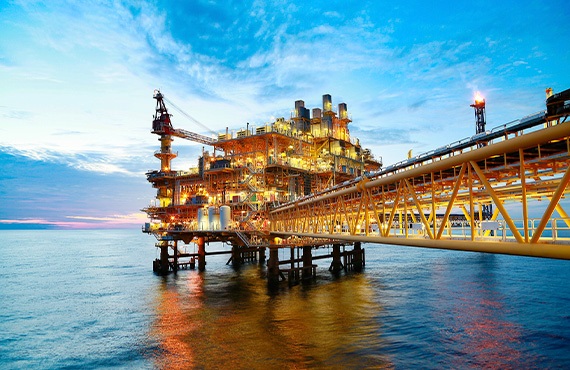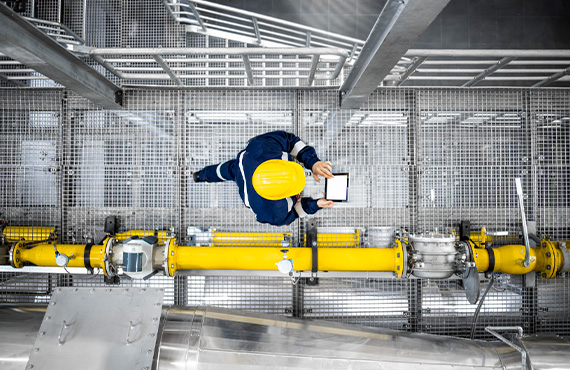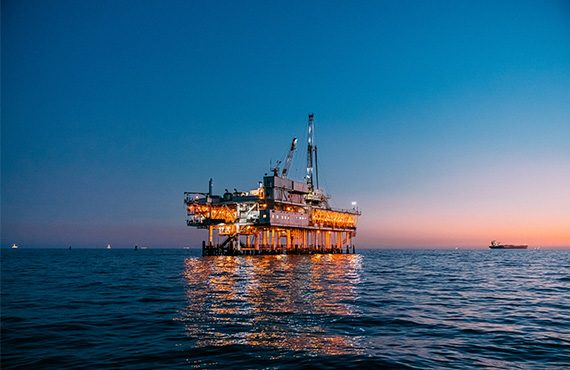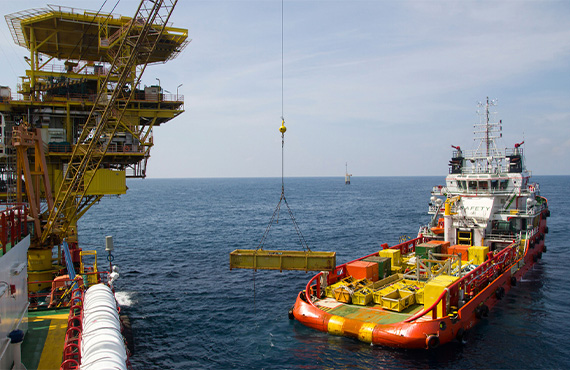
Are you concerned about the safety risks involved in offshore oil and gas operations?
Ensuring the well-being of workers and protecting the environment from potential hazards should be a top priority for any responsible energy company. However, the harsh conditions and complex processes involved in offshore platforms present unique challenges that can compromise safety if not properly managed.
Imagine a scenario where a minor equipment malfunction or human error could escalate into a catastrophic incident, putting lives at risk and causing severe environmental damage. Offshore platforms operate in remote locations, often under extreme weather conditions, making it crucial to have robust safety measures in place to prevent accidents and mitigate their consequences.
Advanced process control (APC) technologies offer a promising solution to enhance safety and operational efficiency in offshore oil and gas platforms. By leveraging cutting-edge algorithms, advanced sensors, and real-time data analysis, APC systems can monitor and optimize various processes, ensuring they operate within safe parameters and minimizing the risk of accidents.
What is Advanced Process Control and How Does it Improve Offshore Safety
Advanced process control (APC) refers to a broad range of techniques and technologies that allow for tighter control and optimization of industrial processes. At its core, APC uses advanced mathematical models and algorithms to precisely monitor and adjust multiple process variables in real-time. This enables operators to push processes closer to their optimal operating boundaries while maintaining safety and stability.
For offshore oil and gas platforms, APC can significantly enhance safety by ensuring tight control over critical parameters like temperatures, pressures, flow rates, and chemical compositions. By continuously monitoring and adjusting these variables, APC helps prevent deviations that could lead to hazardous situations such as equipment overpressure, runaway reactions, or the formation of flammable mixtures.
In addition, APC can account for complex interactions between various process units and optimize their operation holistically. This systems-level approach helps identify and mitigate potential knock-on effects or cascading failures before they escalate into major incidents. Advanced modeling also enables predictive maintenance, allowing operators to detect and address equipment degradation before it results in failures that could compromise safety.
Optimizing Safety Through Precise Process Control

Advanced process control systems play a crucial role in enhancing safety measures on offshore oil and gas platforms. By providing precise control over critical processes, these systems help reduce the risk of accidents and incidents that could potentially endanger personnel, damage equipment, or harm the environment.
Through advanced algorithms and real-time data analysis, process control systems can monitor and adjust various parameters within tight tolerances, ensuring that operations remain within safe operating limits. This level of precision is essential in industries like oil and gas, where even minor deviations from optimal conditions can have severe consequences.
Further, these systems can quickly detect and respond to abnormal situations, allowing for prompt corrective actions to be taken before a minor issue escalates into a major incident. Early detection and mitigation of potential hazards are key to maintaining a safe working environment on offshore platforms, where the consequences of an accident can be catastrophic.
By optimizing processes and maintaining tight control over variables such as pressure, temperature, flow rates, and chemical concentrations, advanced process control systems contribute to a safer and more reliable operation. This, in turn, minimizes the risk of accidents, leaks, or equipment failures, ultimately protecting both personnel and the environment from potential harm.
Proactive Monitoring and Early Warning Systems
Advanced process control systems in offshore oil and gas platforms enable proactive monitoring and early warning mechanisms, allowing for timely intervention and prevention of potential hazards. These cutting-edge systems leverage real-time data acquisition, predictive analytics, and intelligent algorithms to continuously monitor and analyze various operational parameters, including pressure, temperature, flow rates, and equipment performance.
By establishing comprehensive monitoring frameworks, advanced process control solutions can detect anomalies, deviations from standard operating conditions, or potential equipment failures before they escalate into critical situations. Early warning systems integrated into these solutions promptly alert operators and maintenance teams, enabling them to take preventive measures and mitigate risks proactively.
To boot, advanced process control systems can simulate various scenarios and predict potential outcomes, empowering operators to make informed decisions and take corrective actions before incidents occur. This proactive approach significantly reduces the likelihood of accidents, equipment breakdowns, or environmental incidents, ultimately optimizing safety and minimizing operational disruptions.
Boost Equipment Performance and Safety with Advanced Process Control

Advanced process control systems play a crucial role in optimizing equipment performance and safety on offshore oil and gas platforms. By precisely monitoring and regulating various operational parameters, these cutting-edge systems ensure that machinery and equipment operate within optimal ranges, reducing wear and tear while maximizing efficiency.
One of the key advantages of advanced process control is its ability to facilitate predictive maintenance. Through continuous data analysis and pattern recognition, these systems can detect early signs of potential equipment failures or degradation. This proactive approach allows for timely maintenance interventions, preventing catastrophic breakdowns and minimizing unplanned downtime. By addressing issues before they escalate, the risk of accidents and hazardous situations is significantly reduced, enhancing overall safety for personnel and infrastructure.
Likewise, advanced process control systems can automatically adjust operational settings in real-time to compensate for fluctuations in environmental conditions, feedstock quality, or other variables. This dynamic optimization ensures that equipment operates at peak performance levels, minimizing strain and prolonging its lifespan. By reducing excessive wear and tear, the likelihood of equipment failure and associated safety risks is diminished.
Further, these advanced systems often incorporate advanced diagnostic tools and simulation capabilities, enabling operators to identify potential issues proactively and evaluate the impact of various operational scenarios before implementation. This proactive approach allows for informed decision-making, mitigating risks and ensuring that safety remains the top priority throughout the operational lifecycle.
Enhance Operations Efficiency and Productivity with Advanced Process Control
Advanced process control systems offer a powerful solution to optimize operations in offshore oil and gas platforms, leading to improved efficiency, productivity, and reduced downtime. By leveraging sophisticated algorithms and real-time data analysis, these systems can precisely monitor and control critical processes, ensuring optimal performance and minimizing deviations from desired parameters.
One of the key benefits of advanced process control is its ability to anticipate and respond to changing conditions proactively. Through predictive modeling and advanced analytics, the system can identify potential issues before they escalate, allowing for timely interventions and adjustments. This proactive approach minimizes unplanned shutdowns, equipment failures, and associated safety risks, resulting in increased uptime and productivity.
Moreover, advanced process control systems can optimize resource utilization, reducing waste and improving overall efficiency. By continuously monitoring and adjusting process variables, such as temperature, pressure, and flow rates, the system ensures that operations run at their optimal levels, maximizing output while minimizing energy consumption and raw material usage.
In addition to operational benefits, advanced process control systems contribute to enhanced safety measures. By maintaining precise control over critical processes, potential hazards can be mitigated, reducing the risk of accidents, spills, or other environmental incidents. Real-time monitoring and automated responses help prevent situations from escalating, ensuring a safer working environment for personnel and minimizing the environmental impact of offshore operations.
Introducing Proconex: Pioneering Advanced Process Control for Offshore Safety

Proconex is a globally renowned provider of advanced process control solutions, renowned for its cutting-edge technology and proven expertise in optimizing safety and efficiency in offshore oil and gas platforms. With a track record of successful implementations across the industry, Proconex has established itself as a trusted partner for companies seeking to enhance their operations through advanced process control systems.
Leveraging decades of experience and a deep understanding of the unique challenges faced in offshore environments, Proconex's team of highly skilled engineers and domain experts have developed innovative solutions that seamlessly integrate with existing infrastructure. Their advanced process control systems are meticulously designed to ensure maximum safety, reliability, and operational excellence, even in the most demanding offshore conditions.
From real-time monitoring and predictive analytics to automated control and optimization, Proconex's comprehensive suite of solutions empowers offshore operators to make informed decisions, mitigate risks, and optimize processes for improved safety and productivity. By harnessing the power of advanced algorithms, machine learning, and data-driven insights, Proconex's solutions enable proactive identification and mitigation of potential hazards, minimizing the risk of accidents and environmental incidents.
Reinforce Offshore Safety Through Advanced Process Control
Advanced process control systems play a crucial role in ensuring offshore oil and gas platforms adhere to stringent safety regulations and industry standards. By leveraging cutting-edge technologies, these systems enable you to monitor and control various processes with unprecedented precision, minimizing the risk of accidents and environmental incidents.
One of the primary benefits of advanced process control is its ability to maintain optimal operating conditions. These systems continuously analyze real-time data from sensors and instruments, making automated adjustments to variables such as pressure, temperature, and flow rates. By keeping these parameters within predefined safe limits, you can significantly reduce the likelihood of equipment failures, leaks, or other hazardous situations.
Moreover, advanced process control systems incorporate sophisticated algorithms and predictive models, allowing you to anticipate potential issues before they occur. These systems can detect subtle deviations from normal operating conditions and alert personnel, enabling prompt corrective actions. Early intervention can prevent minor issues from escalating into major incidents, safeguarding the safety of your workforce and minimizing the environmental impact.
Compliance with safety regulations is a paramount concern in the offshore industry. Advanced process control systems facilitate adherence to these stringent guidelines by providing comprehensive data logging and reporting capabilities. You can maintain detailed records of all operational parameters, demonstrating compliance with regulatory requirements and enabling thorough incident investigations, if needed.
Addressing Concerns and FAQs
At Proconex, we’ll provide your organization with comprehensive training and support. We'll work closely with your team to ensure they understand the system inside and out, and we'll be available for ongoing assistance whenever needed.
While any significant change carries some risk, the potential rewards of advanced process control far outweigh the risks. Our solutions are designed to integrate seamlessly with your existing systems, minimizing disruptions and ensuring a smooth transition.
The benefits of advanced process control are numerous and quantifiable. From improved safety and efficiency to reduced emissions and operational costs, our solutions can deliver a significant return on investment. We'll provide detailed projections and case studies to help you make a compelling case.
Reliability is a top priority for us. Our systems are designed with redundancies and failsafes to ensure continuous operation, even in the event of component failures or maintenance. Additionally, our support team is available 24/7 to address any issues that may arise.
Remember, advanced process control is not just about technology – it's about empowering your team, optimizing your operations, and positioning your organization for long-term success in a rapidly evolving industry.
Amplify Safety Through Advanced Process Control
Advanced process control (APC) technology offers a comprehensive solution to enhance safety on offshore oil and gas platforms. By leveraging real-time data analysis, predictive modeling, and automated control systems, APC enables proactive identification and mitigation of potential hazards, minimizing the risk of accidents and environmental incidents.
The implementation of APC systems empowers operators to maintain precise control over critical processes, ensuring adherence to strict safety protocols and regulatory compliance. Through continuous monitoring and adjustment of process variables, such as pressure, temperature, and flow rates, APC helps prevent deviations that could lead to catastrophic failures.
Not to mention, APC facilitates efficient resource management, optimizing energy consumption and reducing waste, contributing to a more sustainable and environmentally responsible operation. By maximizing operational efficiency, APC indirectly enhances safety by minimizing the need for manual interventions, which can be prone to human error.
In the event of an emergency, APC systems can quickly respond and initiate automated safety protocols, such as shutting down operations or rerouting processes, minimizing the potential for escalation and mitigating the impact on personnel and the environment.
